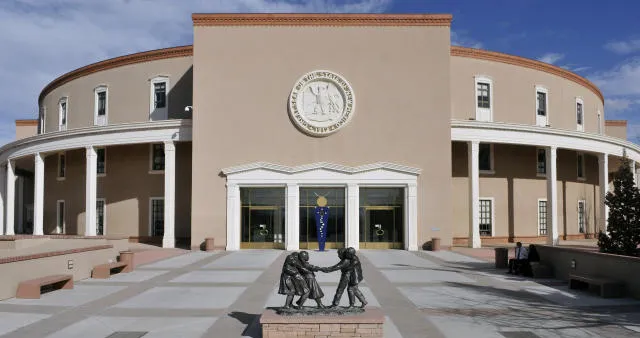By Charles Goodmacher, NEA-NM Government Relations Consultant
Short and sweet is how the recent “special” session of the legislature went. It was over in less than two days, and the Governor has signed four of the five bills that passed. NEA-NM was there to be sure our students and public education was not harmed during the making of the “special.” Good news: there was no harm done and important support for students and their families gained funding to reverse the negative harm that are otherwise on the way from the federal retrenchment on health, education and other vital public services.
Here’s a short recap of the bills and what they do.
House Bill 1: General appropriations
House Bill 1 spends the money called for in other pieces of legislation. If lawmakers approve it, the bill authorizes the spending of nearly $162 million in spending over the next two fiscal years. The money will go toward rural hospitals, tax credits for health insurance, food stamps for seniors and other areas.
House Bill 2: Health care coverage changes
This bill gives the Health Care Authority all the flexibility it needs to ensure New Mexicans who acquire health insurance via New Mexico’s exchange will avoid huge premium increases when tax credits expire later this year. Without the state’s intervention, premiums could double next year for some New Mexico families. Many of our students’ families buy healthcare from BeWell, New Mexico’s health insurance marketplace. Most of them receive some form of state or federal subsidy. “For some low-income families, this drastic increase may need less money to put food on the table or even forgoing health insurance in order to pay rent.”
Senate Bill 1: Health care grants and anti-hunger efforts
This non-partisan bill transfers $50 million from the state general fund to the rural health care delivery fund. Various cuts in the “One Big Beautiful Bill Act” mean that between six and eight rural hospitals in New Mexico could be on the brink of closure, according to warnings from New Mexico’s congressional delegation. Sen. Mimi Stewart (D-Albuquerque), the Senate Pro Tem, said the closure would mean the loss of 1,300 jobs statewide as well as large swaths of the state (and large numbers of students) without access to health care. While the medical compact bill was not debated in the special session, lawmakers put aside $100,000 to study implementing future rules for joining an interstate compact.
HB 1 appropriates $5.6 million for educational television and public radio and $430 thousand to the Indian Affairs Department for educational television and public radio provided by and for Indian nations, tribes, and pueblos.
Finally, HB1 also appropriates $45.9 million in food expenditures: • $4.6 million to maintain federal Supplemental Nutrition Assistance Program (SNAP) program benefits for elders and people with disabilities; • $12 million to maintain the minimum SNAP benefit; • $1.246 million to prevent layoffs of employees in the SNAP program and obesity grant program at the UNM and NMSU; • $8 million to support food programming, including $2.5 million for capacity buildings, transportation, logistics and operational expenses; • $2 million to support educational-based centers and food pantry and distribution programs in consultation with the Early Childhood Education and Care, Public Education, and Higher Education departments vouchers.
Senate Bill 2: Criminal competency
This bill would allow the Bernalillo County Metropolitan Court to determine competency.
A fiscal impact report for the bill says it undoes a change the Legislature made in the session earlier this year when lawmakers required the Metro court to transfer misdemeanor cases in which a defendant’s competency to stand trial was an open question to district court.
Senate Bill 3: Immunization rules and recommendations
The bill expands vaccine requirements that apply to children in public schools to extend to childcare programs. The bill also allows the New Mexico Department of Health to create its own recommendations for childhood vaccines, instead of being required to follow federal guidance on the issues, which is the current law. NM Department of Health Secretary Gina DeBlassie said the current law prevents the purchasing of COVID-19 vaccines for insured children — which is the responsibility of the health department — because the acting director of the CDC has still not signed off on approval of the vaccine. Unfortunately, this bill lacked sufficient Republican support and so does not take effect until 90 days later.
NEA-NM was called upon by a senior Senator to actively speak for the SB3 “Immunization rules and recommendations.” The substantive part of our very brief statement: ”Vaccines are essential medical tools for preventing infectious diseases, and they must be pervasive to effectively protect society, including our public school students. Evidence-based vaccination campaigns are integral in maintaining student and community health. More limited access in some states could, in turn, lead to decreased vaccine coverage, increased incidence of vaccine preventable diseases, as already has been seen with the recent measles outbreak, and declining vaccine coverage among school-aged children.”
